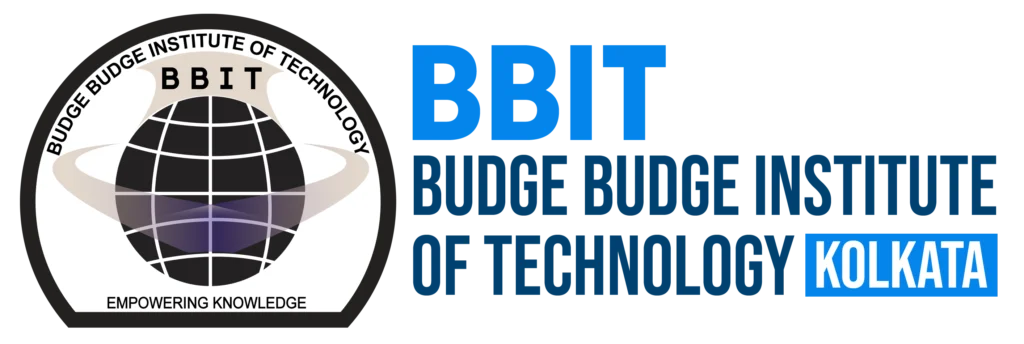B.Tech in Computer Science and Engineering (CSE)
DURATION: 3 YEARS
Become Leaders of Tomorrow!
At BBIT College, Kolkata, the B.Tech in Computer Science and Engineering program provides students with extensive practical exposure through state-of-the-art laboratories. Students are encouraged to apply theoretical concepts learned in the classroom to real-world scenarios, with hands-on training in software development, hardware systems, and information security enhancing their technical skills.
The college values industry exposure and collaboration, offering opportunities for internships and projects with leading organizations. This real-world experience helps students gain a competitive edge and prepares them for professional success.
A research-oriented environment is fostered at BBIT College, with students encouraged to explore emerging technologies and contribute to advancements in the field. They benefit from advanced research facilities and the guidance of experienced faculty members.
In addition to technical training, the curriculum at BBIT College emphasizes the development of interpersonal and communication skills. Students participate in workshops, seminars, and presentations to improve their overall personality and employability.
BBIT College also supports and encourages entrepreneurial ambitions, equipping students with the skills and mindset necessary to turn innovative ideas into successful ventures.

Programme Outcomes:
Apply knowledge of mathematics, science, engineering fundamentals, and specialization to solve complex engineering problems.
Identify, formulate, and analyze complex engineering problems using principles of mathematics, natural sciences, and engineering sciences to reach substantiated conclusions.
Design solutions for complex engineering problems and develop system components or processes that meet specified needs while considering public health, safety, and cultural, societal, and environmental factors.
Conduct investigations into complex problems using research-based knowledge and methods, including designing experiments, analyzing data, and synthesizing information to draw valid conclusions.
Create, select, and apply appropriate techniques, resources, and modern engineering and IT tools for complex engineering activities, understanding their limitations.
Apply contextual knowledge to assess societal, health, safety, legal, and cultural issues and the responsibilities relevant to professional engineering practice.
Understand the impact of engineering solutions on societal and environmental contexts and demonstrate a commitment to sustainable development.
Adhere to ethical principles and professional responsibilities in engineering practice.
Function effectively as an individual and as a member or leader in diverse teams and multidisciplinary settings.
Communicate effectively about complex engineering activities with the engineering community and society at large, including writing effective reports and design documentation, making presentations, and giving and receiving clear instructions.
Demonstrate knowledge and understanding of engineering and management principles to manage projects and work effectively in multidisciplinary environments.
Recognize the need for, and engage in, independent and lifelong learning in the context of technological change.
Program Specific Objectives (PSOs):

Critically analyze complex power system scenarios and propose solutions using acquired theoretical and practical knowledge.

Work on defined projects by interpreting power system data to provide real-time solutions to system issues

Identify optimal solutions to enhance power transfer capability, improve power quality, and ensure reliability.
This program is ideal for individuals passionate about manufacturing and designing power systems, who possess strong problem-solving abilities and a desire to pursue rewarding careers in electrical system design, development, and maintenance, ensuring quality, safety, reliability, and sustainability.
Programme Educational Objectives:
Prepare students to excel in postgraduate programs, succeed in the computing industry, or become successful entrepreneurs through a high-quality education in Computer Science and Engineering.
Equip students with the ability to analyze and solve complex problems in computer science and engineering using fundamental knowledge in mathematics, science, and engineering.
Provide comprehensive training in Computer Science and Engineering to enable students to design, analyze, and create innovative computing products and solutions for real-world problems.
Instill professional and ethical attitudes, strong communication and teamwork skills, a commitment to lifelong learning, and an understanding of how computer engineering issues relate to societal impacts.
Offer an excellent academic environment to prepare students for successful careers as engineers, scientists, technocrats, administrators, and entrepreneurs.
Programme Specific Outcomes:
Develop strong skills in learning new programming environments, analyzing, and designing algorithms for efficient computer-based systems of varying complexity.
Understand evolutionary changes in computing and apply standard practices and strategies in software project development using open-ended programming environments to deliver quality products that address real-world problems and future challenges.
Analyze the impact of computer science and engineering solutions on societal and human contexts, and design, model, develop, test, and manage complex software and information management systems.
Potential Job Roles
Software Engineering
Software engineers work on creating complex solutions for various applications across different sectors. Unlike programmers, who focus on coding, software engineers design the framework and architecture that programmers use to implement solutions.
Graphic Designing
Graphic designers work on visually appealing projects, which often include designing interfaces, advertisements, and promotional materials. Front-end web designing is a popular path within graphic design, offering flexibility and attractive salary packages.
Software Testing
Software testers, or Quality Analysts, are crucial for ensuring the quality of software applications. They evaluate software to find bugs and issues, using their knowledge of the entire software development life cycle to enhance product reliability and performance.
Information Security Professional
Information security professionals focus on protecting systems and data from cyber threats. This dynamic field requires staying updated with the latest industry trends and security measures to safeguard sensitive information.
Mobile Application Developer
With the proliferation of smartphones, mobile app development is a growing field. Mobile application developers create apps for various platforms, and entry-level positions offer competitive salaries with significant growth potential in this emerging area.
Program Overview & Structure
Theory:
- English language technical Communication
- Physics – 1
- Mathematics-1
- Basic Electrical Electronic Engineering – 1
- Engg. Mechanics
- Physics – 1
- Basic Electrical Electronic Engineering -1
- Workshop Practice
- Language Laboratory
- Extra Curricular Activities(NSS/NCC/NSO etc)
Theory:
- Basic Computation Principles of Computer Programming
- Chemistry-1
- Mathematics-2
- Basic Electrical Electronic Engineering-II
- Engineering Thermodynamics Fluid Mechanics
- Basic Computation Principles of Computer Programming
- Chemistry-1
- Basic Electrical Electronic Engineering- II
- Basic Engg. Drawing Computer Graphics
Theory:
- Values Ethics in Profession
- Physics-2
- Basic Environmental Engineering Elementary Biology
- Analog Digital Electronics
- Data Structure Algorithm
- Computer Organization
- Physics-2
- Analog Digital Electronics
- Data Structure Algorithm
- Computer Organization
Theory:
- Numerical Methods
- Mathematics-3
- Communication Engg. Coding Theory
- Formal Language Automata Theory
- Computer Architecture
- Technical Report Writing Language Lab Practice Numerical Methods Lab
- Communication Engg Coding Theory
- Software Tools
- Computer Architecture
Theory:
- Economics for Engineers
- Design Analysis of Algorithm
- Microprocessors Microcontrollers
- Discrete Mathematics
- Object Oriented Programming (IT)
- Design Analysis of Algorithm
- Microprocessors Microcontrollers
- Programming Practices using C++
- Object Oriented Programming (IT)
Theory:
- Principles of Management
- Data Base Management System
- Computer Networks
- Operating System
- Computer Graphics
- Multimedia Technology (IT)
Practical:
- Data Base Management System Lab
- Network Lab
- Operating System Lab
- Seminar
Theory:
- Software Engg.
- Compiler Design
- Artificial Intelligence
- Cloud Computing
- Internet Technology (IT)
Practical:
- Software Engg. Lab
- Group Discussion
- Industrial training
Theory:
- Cryptography Network Security
- E-Commerce (IT)
Practical:
- Project-2
- Project Management
- Design Lab / Industrial problem related practical training (Workshop needed)
- Grand Viva
Eligibility Criteria
B. Tech: Sr. Secondary (10+2) in PCM/PCMB with minimum 50% marks from recognized Board / University
Fees Structure
24 Months EMI
₹4,583*
Interest free
Per Semester Fee
₹27,500*
Full Program Fee
₹1,65,000
Meet our Top Rank Faculties

DR. BIMAL DATTA
Professor, ME/M. Tech and PhD

DR. SANDEEP MALIK
Professor, ME/M. Tech and PhD

DR. AMITAVA SEN
Professor, ME/M. Tech and PhD

DR. HIMADRI BISWAS
Professor, ME/M. Tech and PhD

DR. DIPANKAR MISRA
Professor, ME/M. Tech and PhD

DR. SAHANA DAS
Professor, MCA and PhD

DR. DEBASISH MUKHERJEE
Associate Professor, ME/M. Tech and PhD

DR. MUNSHI YUSUF ALAM
Associate Professor, ME/M. Tech and PhD

INDRAJIT CHAKRABORTY
Assistant Professor, M.E/M.Tech

RUPAM SARDAR
Assistant Professor, M.E/M.Tech

SIDDHARTHA PRADHAN
Assistant Professor, M.E/M.Tech

TRISHA MONDAL
Assistant Professor, M.E/M.Tech

RAKESH KUMAR GUPTA
Assistant Professor, M.E/M.Tech

SUBHADEEP MAJUMDAR
Assistant Professor, M.E/M.Tech

RITUPARNA DEY
Assistant Professor, M.E/M.Tech

JAYANTA PRATIHAR
Assistant Professor, M.E/M.Tech

JAYANTA BASAK
Assistant Professor, M.E/M.Tech

DR. ARUP ROY
Associate Professor, ME/M. Tech and PhD

RAJ KUMAR PAUL
Assistant Professor, M.E/M.Tech

SAGAR CHAKRABORTY
Assistant Professor, M.E/M.Tech

ASHISH PRAMANIK
Assistant Professor, M.E/M.Tech

MOUSUMI OJHA
Assistant Professor, M.E/M.Tech

DIPAYAN DAS
Assistant Professor, M.E/M.Tech

Archishman Ghosh
Assistant Professor, B.TECH., M.TECH.

Mr. Sujit Biswas
Assistant Professor, B.TECH., M.TECH.

ATREYEE DATTA
Assistant Professor, B.TECH., M.TECH.

RISHOV SAHA
Assistant Professor, B.TECH., M.TECH.

Arjun Chatterjee
Assistant Professor, B.TECH., M.TECH.

Kaushik Sarkar
Assistant Professor, B.TECH., M.TECH.

Sk. Anamul Sanowar
Assistant Professor, B.TECH., M.TECH.

Kaustav Bndyopdhyay
Assistant Professor, B.TECH., M.TECH.

Uddyalok Chakraborty
Assistant Professor, B.TECH., M.TECH.

ARINDOM MITRA
Assistant Professor, DIPLOMA, B.TECH., M.TECH.

Paramita Das
Assistant Professor, B.TECH., M.TECH.
Upraise your Career Now with BBIT's M.Tech Program.

State-of-the-Art:

Vision
To impart quality technical education, addressing industry needs and contributing positively to society.

Mission
To equip students with a strong foundation in basic sciences and engineering principles, ensuring proficiency in both software and hardware development. This preparation aims to foster success in industry, further studies, or entrepreneurship while instilling a strong sense of corporate social responsibility.

